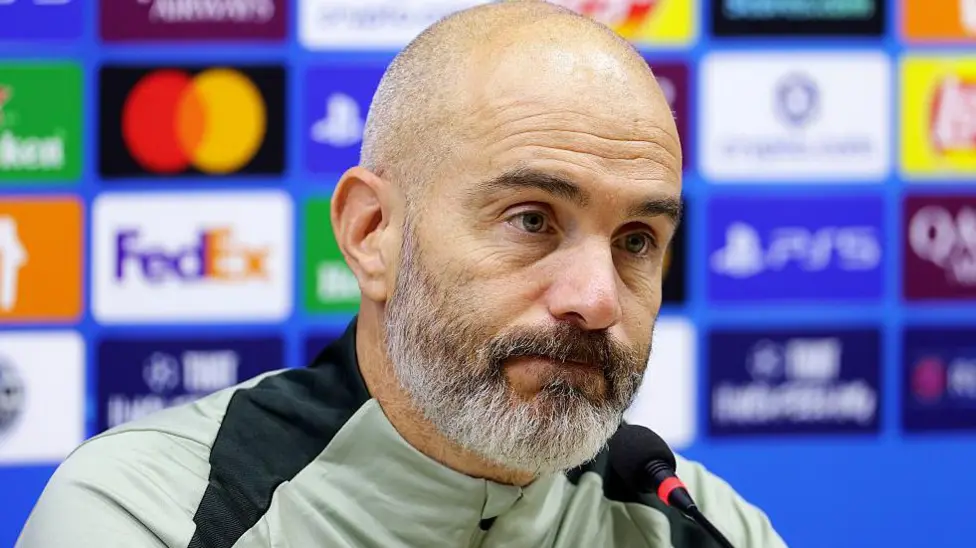Chelsea manager Enzo Maresca has defended his player rotation policy following sharp criticism from former England captain Wayne Rooney. The Italian coach stood firm after Rooney suggested senior Chelsea players should “question” the manager’s frequent changes to his starting lineup.
Rooney’s remarks came after Chelsea’s 2-2 draw with Qarabag in the Champions League on Wednesday — a match in which Maresca made seven changes from his previous lineup. It marked the fifth consecutive game that the Chelsea boss has altered at least seven positions, a trend that has divided opinion among pundits and supporters alike.
Maresca, however, insists his rotation is deliberate and strategic, designed to maintain fitness and performance throughout what he calls a “marathon season.”
Chelsea, who won the Club World Cup earlier in the summer, are competing across multiple fronts, including the Premier League, Champions League, and domestic cups — potentially playing up to 65 matches this campaign.
“We are in an era where anyone can say what they want,” Maresca responded when asked about Rooney’s criticism. “Since I joined the club, it has been my view to rotate players. No one complains when you win. When you don’t win, I can understand people disagreeing. But football is different now. The physicality and intensity are much higher. It’s impossible to play with the same players 65 times in one season.”
Maresca, who has won 50 of his 80 games in charge since joining Chelsea, drew on his own experiences as a player to justify his approach. “I loved rotation as a player,” he said. “If you see the season like a marathon, when you reach February or March — the last sprint — you have to think differently. It’s about arriving at that stage strong, not exhausted.”
One of Maresca’s more controversial decisions in Baku was starting 18-year-old defender Jorrel Hato, who was at fault for both of Qarabag’s goals. But the manager defended his choice, arguing that giving young players exposure to big moments is part of their growth.
“When the rotation involves Andrey Santos, a Brazil international, Jorrel Hato, a Netherlands international, and Estevão, a Brazil international, then it’s not really about rotation,” Maresca explained. “They are talented, they are young, and when they are young, you have to give them chances — even to make mistakes. But when you don’t win, people blame rotation.”
Chelsea’s leadership, however, are said to be fully behind Maresca’s methods. According to club reporter Nizaar Kinsella, senior figures at Stamford Bridge view the rotation strategy as a long-term plan to keep players fresh and reduce injury risk. The approach aligns with a broader vision set by the club’s sporting directors, who built a deep and versatile squad designed for sustained competitiveness across multiple competitions.
Club insiders believe the strategy is particularly important given Chelsea’s recent injury record. England defender Reece James is cited as a key example — his carefully managed minutes under Maresca are seen as helping to prevent recurring fitness issues that plagued previous seasons.
While some players are still adapting to Maresca’s tactical demands, the club’s hierarchy believes the rotation will pay dividends later in the campaign. The philosophy emphasizes patience and squad depth over short-term criticism, with Maresca’s meticulous planning aimed at ensuring Chelsea peak when it matters most.
Despite Rooney’s comments sparking debate among fans, Maresca’s calm response reflects a manager confident in his process. His willingness to trust young players such as Hato, Santos, and Estevão demonstrates his commitment to developing Chelsea’s next generation while maintaining competitiveness at the highest level.
For now, Maresca remains focused on results, rotation or not. With Chelsea pushing for domestic and European success, his belief in long-term squad management over short-term consistency could define the trajectory of their season — and perhaps vindicate his stance by the time the marathon reaches its finish line.



